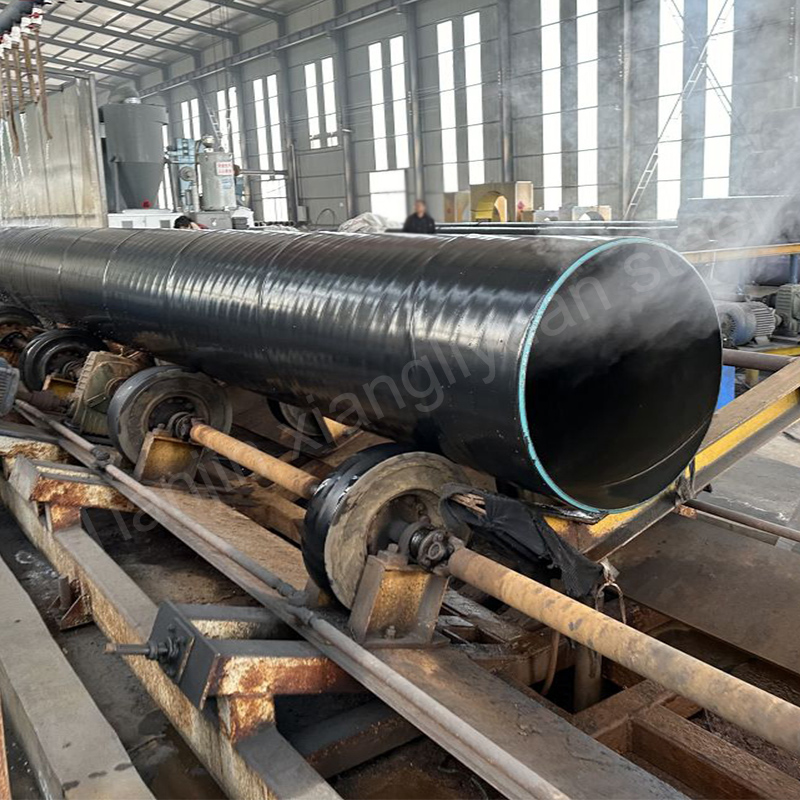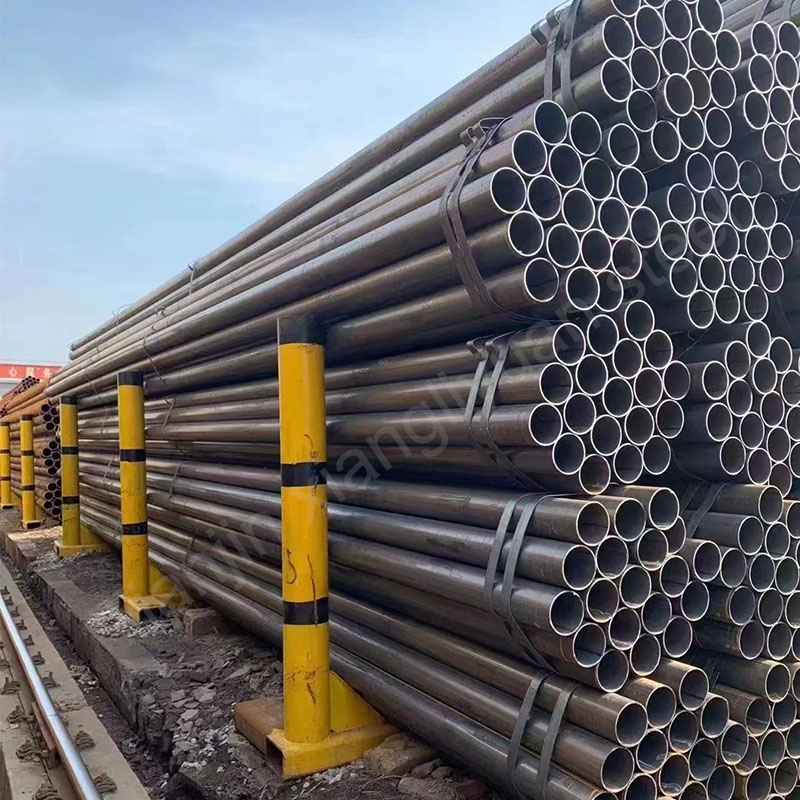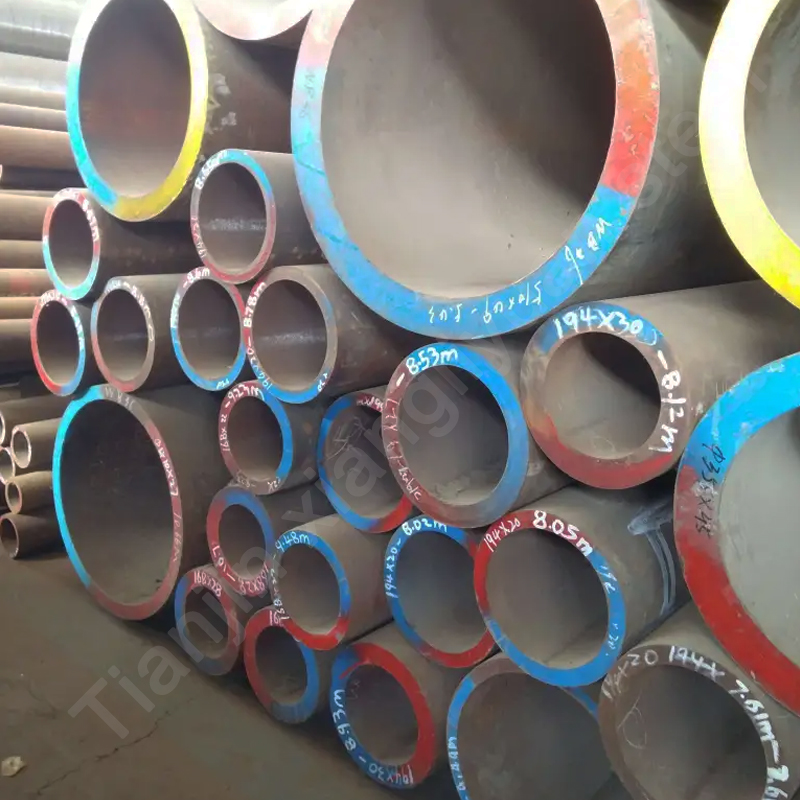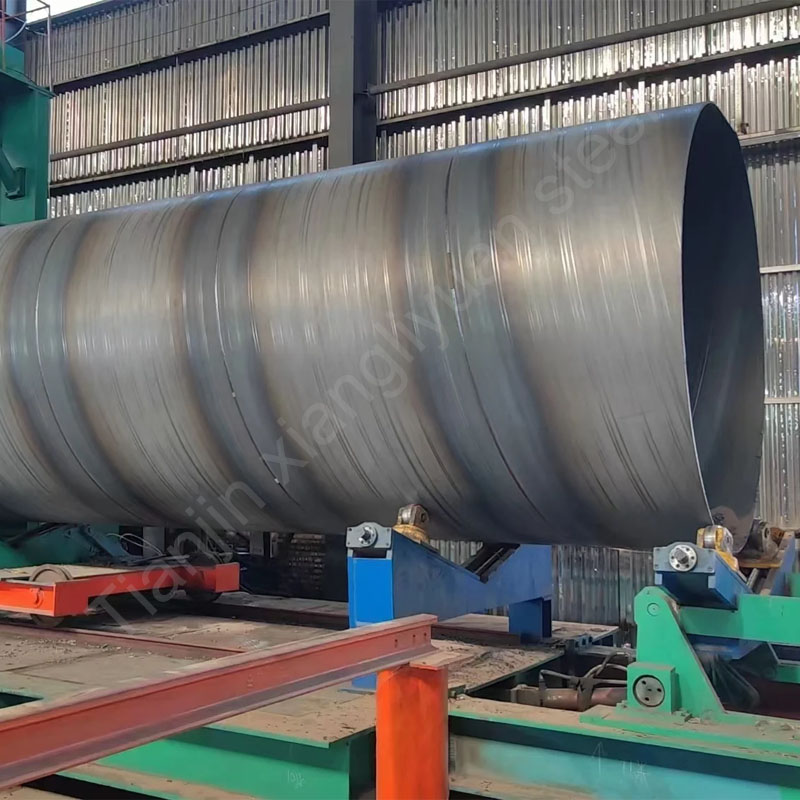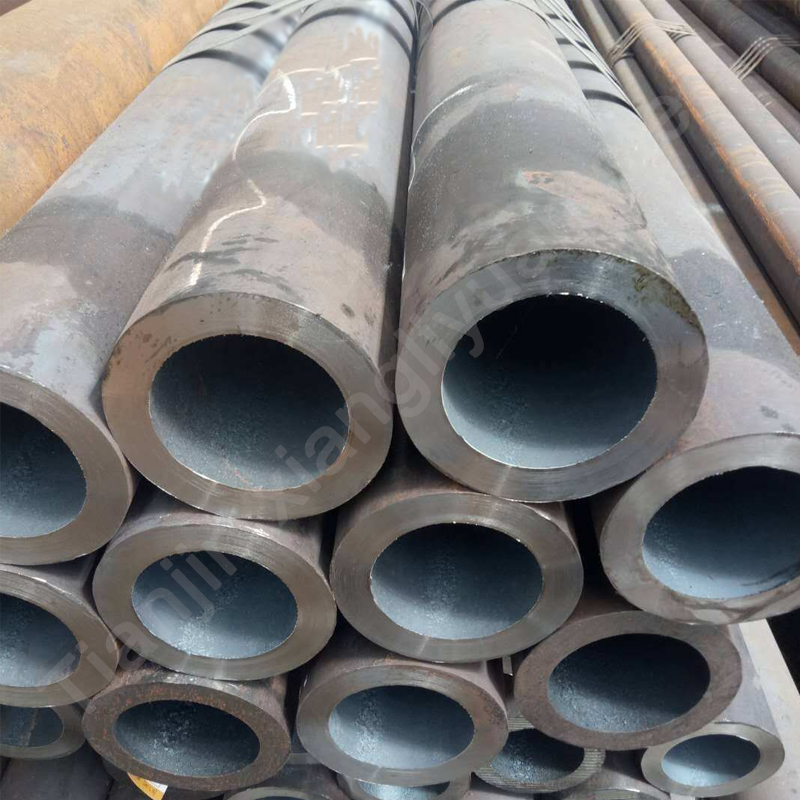Carbon steel pipes are widely used in the fields of oil, natural gas, chemical industry, electric power, etc., and are often in harsh environments such as humidity, corrosive gases, groundwater, etc. In such an environment, carbon steel pipes are susceptible to corrosion, which shortens their service life and even causes pipe damage. Therefore, anti-corrosion treatment of carbon steel pipes is one of the key measures to extend their service life and ensure their safe operation. Among them, 3PE anti-corrosion coating is one of the most effective anti-corrosion technologies at present.
What is 3PE anti-corrosion coating?
3PE anti-corrosion coating consists of three layers of materials, hence the name “3PE”. The three layers are epoxy powder layer (Epoxy), adhesive layer (Adhesive) and polyethylene layer (Polyethylene). The epoxy powder layer is tightly attached to the surface of the steel pipe, providing excellent corrosion resistance; the adhesive layer mainly serves to connect the epoxy powder layer and the polyethylene layer to ensure a firm bond between the layers; the outermost polyethylene layer has excellent mechanical protection properties and can resist external mechanical damage, impact and friction. These three layers of coating provide all-round protection for carbon steel pipes through synergistic effects.
The role of 3PE anti-corrosion coating
The main functions of 3PE anti-corrosion coating are reflected in the following aspects:
First, 3PE coating can effectively isolate external corrosive media, such as moisture, oxygen and chemicals, to prevent them from direct contact with steel pipes, thereby greatly reducing the chance of corrosion. The high-density structure of the epoxy powder layer makes it excellent in waterproofing and gas proofing, becoming the first line of defense for steel pipes.
Second, 3PE coating can provide excellent mechanical protection for carbon steel pipes. The polyethylene layer has extremely high impact resistance and wear resistance, and can effectively resist physical damage from the outside world. Especially in underground pipeline laying, the pipeline is often affected by soil pressure, rock friction, etc., and the physical protection performance of 3PE coating is particularly important.
Finally, 3PE anti-corrosion coating can also significantly extend the service life of carbon steel pipes. According to research, the service life of carbon steel pipes with 3PE coating can reach more than 50 years in ordinary environments, which greatly reduces the frequency of pipeline replacement, thereby reducing maintenance costs and operational risks.
Although 3PE anti-corrosion coating is the mainstream choice in the field of carbon steel pipe anti-corrosion, it is not the only anti-corrosion coating. According to different application environments and cost considerations, carbon steel pipes can also choose the following common anti-corrosion coatings:
Epoxy coal tar coating: This coating is mainly used for the anti-corrosion of underground or underwater pipelines. Epoxy coal tar coating has excellent chemical resistance and water resistance, can resist the erosion of chemicals such as acids, alkalis, and salts, and has a large coating thickness and high mechanical strength. However, its construction process is relatively complicated and requires high coating thickness.
FBE coating (fused epoxy powder coating): FBE coating is another common anti-corrosion coating, which is usually used for natural gas and oil pipelines. FBE coating has excellent adhesion and chemical corrosion resistance, and can work stably for a long time under high temperature and high pressure. In addition, FBE coating is simple to construct and has good environmental protection. It is a green anti-corrosion technology. However, compared with 3PE coating, FBE has weaker mechanical protection performance, so it is often used in occasions with single anti-corrosion requirements.
Polyurethane coating: Polyurethane coating is a new type of high-performance anti-corrosion coating with good wear resistance and UV resistance. It is suitable for steel structures or overhead pipelines exposed to the sun. In addition, polyurethane coating has good temperature resistance and can maintain stable anti-corrosion performance under high or low temperature conditions.
Hot-dip galvanized coating: For some carbon steel pipes with light anti-corrosion requirements, hot-dip galvanized coating is also a common choice. The galvanized layer can provide certain anti-corrosion protection and is relatively low in cost, which is suitable for steel pipes used indoors or in low-corrosion environments.
In general, 3PE anti-corrosion coating is widely used in harsh environments such as underground and submarine pipelines due to its excellent anti-corrosion performance and mechanical protection. According to the specific working conditions, different anti-corrosion coatings also have their unique advantages and scope of application. When choosing an anti-corrosion coating, it is necessary to comprehensively consider the actual environmental conditions, economic costs and engineering requirements to ensure the best anti-corrosion effect.

